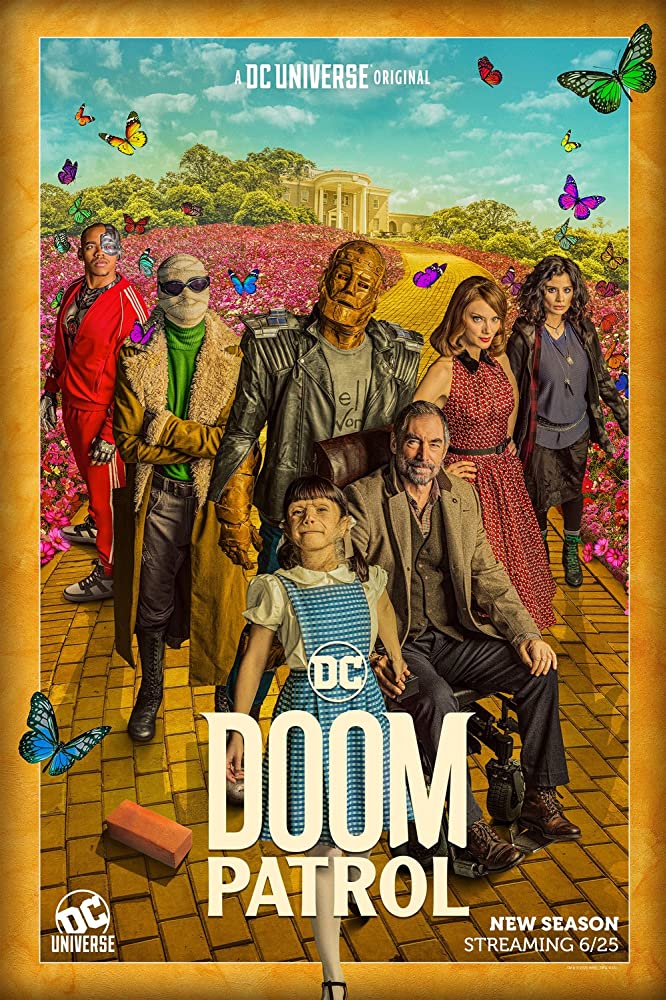Season 1 of “GLOW” is available now on Netflix.
Latest Article|September 3, 2020|Free
::Making Grown Men Cry Since 1992
4 min read
Netflix has become such a movie- and series-producing machine these days that it’s hard to keep up with. Occasionally, though, you’ve just got to stop, peruse the “Recently Added” queue and start bingeing like mad. Among the streaming service’s recent must-watch hits is the smartly entertaining/entertainingly smart, retro-tastic wrestling series “GLOW.” “GLOW” is a heavily fictionalized accounting of the gimmicky, mid-’80s syndicated TV series “GLOW” (a.k.a. “Gorgeous Ladies of Wrestling”). Though the datedly silly, teasingly sexy, comically violent show seems like odd inspiration for a pointedly critical examination of the post-Women’s Lib entertainment industry, the show works like gangbusters as both campy, self-aware entertainment and subversive think-piece. You can pin a lot of the show’s success on creators Liz Flahive and Carly Mensch, who have clearly thought about the heavy social metaphors beneath the glitter and Spandex. Also of note is executive producer Jenji Kohan, whose shows “Weeds” and “Orange is the New Black” provide a fine dramedic template for “GLOW” to follow. Of course, the pitch-perfect period details and the topnotch cast don’t hurt either.Though the show works as an ensemble, Alison Brie (“Community,” “Mad Men”) is front-and-center as struggling LA actress Ruth Wilder. The show sets its tone perfectly with an opening joke in which Ruth tries out for what looks like a good, strong female role at a Hollywood audition—only to be told she’s screwed up by reading the man’s part. At the end of her rope, Ruth ends up at a chaotic audition for an “experimental” project. Turns out that washed-up shlock movie director Sam Sylvia (Marc Maron, in the best casting of his career) is putting together an all-women wrestling league. The story of “GLOW”—ragtag group of losers try to make something special happen—isn’t anything new. But the perspective of the creators (trenchant feminists in addition to respectful fans) is strong—proving that an injection of fresh new voices is exactly what Hollywood desperately needs.Over the course of the 10-episode first season, we get to know Ruth, Sam and the collection of oddballs who end up forming this ridiculous sports/performance troupe. Ruth, the “serious” actress in the group, is seen as a wet blanket by many of her fellow wrestlers-in-training, but when push comes to shove, she ends up being the cheerleader keeping it all moving forward. Unfortunately, our main protagonist is also dealing with the fallout of having slept with her best friend’s husband. Sensing a perfect, ready-made conflict, Sam hires fellow actress/former best friend Debbie (Betty Gilpin from “Nurse Jackie”) to serve as Ruth’s rival in the ring. Though it’s doled out in short, 30-minute bursts of humor, drama and action, “GLOW” runs through a lot of topics. It examines the fine line between exploiting and empowering women. It contemplates the concept of sisterhood (which isn’t always a friendly thing). It explores Ruth’s frenzied search for a wrestling persona—which mirrors her own confusion over self-identity. It manages to get across that old-fashioned Mickey Rooney and Judy Garland “Let’s Put on a Show” camaraderie. And it reminds viewers what was so all-fired fun about the simple heels-vs.-babyfaces world of ’80s wrestling. In short, “GLOW” is a certified, title-belt-wearing winner.



